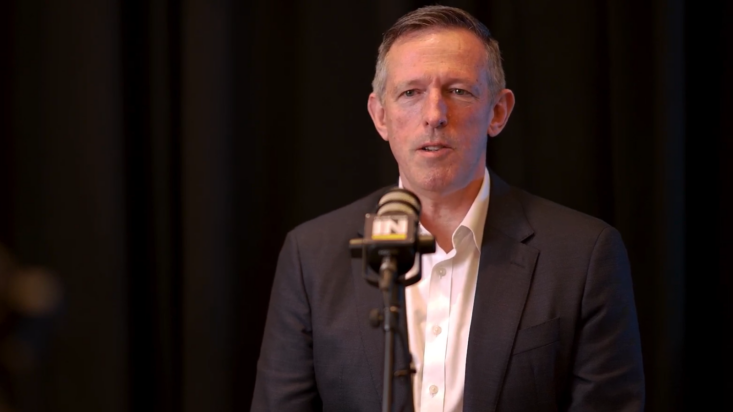Macquarie leans into AI for ‘less volatile, more robust’ equity active ETFs
With the world’s computing power growing at an exponential rate, it would be remiss of any investment team not to harness its immense potential to amplify the effectiveness of its products. For Macquarie Asset Management, setting up its range of core equity active ETFs with artificial intelligence as a central part of its approach was essential.
Addressing a room full of financial advisers at The Inside Network’s recent Masterclass session, Scot Thompson, head of business strategy for equities and multi-asset, set the scene by reminding everyone just how phenomenal the technological rate of change has been.
“The phones we carry in our pocket are 100,000 times more powerful than the computer that first put man on the moon,” Thompson said, “And those same phones are 5,000 times faster than the world’s first supercomputer, which weighed more than 2.5 tons.”
“The other part of that is storage,” he continued. “How much more storage does your phone have than the computer that launched a space rocket? A million times.”
As co-head of Macquarie Systematic Investments, and now head of business strategy, Thompson’s raison d’être has been to find the most effective ways to lend this power to Macquarie Asset Management’s latest suite of active ETFs.
For Thompson, the most impactful distillation of that power became the practice of actively training models to input thousands of streams, which could include anything like investment styles to market scenarios, and using the data to create better outcomes.
“We wanted to think holistically about building more robust models, so we used various techniques to create 5,000 different monthly return scenarios, or 5,000 different universes,” he explained. “Then you start seeing less volatility and more robust outcomes.”
He used two streams – growth and value investment styles – to illustrate how AI can blend ‘streams’ to uplift investment returns.
“If you just thought about one particular style or factor – growth – and you think about price quality, people are generally looking for lower volatility, safer stocks,” he said.
“That’s one view. Let’s add another view. Let’s assume that we have a value investor. They’re thinking about the world quite differently, but when we combine the two factors together you start to see a little bit more consistency, a little less drawdown and slightly higher returns. You can pull together as many views as you want that deliver you some unique views of companies, and you can start to look at a much stronger or more stable alpha forecast.”
Of course, the best outcome isn’t always derived from throwing as much data together as possible, and the team’s current “signal set” contains only 68 independent streams or “signals”.
“The complexity of being able to do that type of treatment and add those types of combinations is all geared towards using the technology to gain efficiency,” he said. “Ten years ago it would have taken us two full days to run a signal set as complex as this. Now we can run the entire back test and refresh our signals in less than half that, and it’s much more complex than it used to be.”











